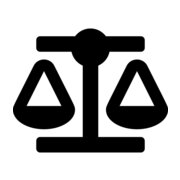Best White Collar Crime Lawyers in Fribourg
Share your needs with us, get contacted by law firms.
Free. Takes 2 min.
List of the best lawyers in Fribourg, Switzerland
About White Collar Crime Law in Fribourg, Switzerland
White collar crime refers to non-violent, financially motivated offenses usually committed by individuals, professionals, or businesses in positions of trust. In Fribourg, Switzerland, such crimes are typically prosecuted under the Swiss Penal Code and encompass a range of illegal activities such as fraud, embezzlement, corruption, bribery, insider trading, tax evasion, and money laundering. The authorities in Fribourg treat these offenses seriously due to their potential to harm both individuals and the integrity of the economic and legal system.
Why You May Need a Lawyer
A lawyer specializing in white collar crime can provide essential guidance and protection for anyone facing investigations or charges. Here are some common situations where legal assistance is vital:
- You are suspected of or charged with committing fraud, embezzlement, bribery, or another financial offense.
- Your business is under investigation by Swiss authorities for alleged illegal practices.
- You receive a summons, search warrant, or notification of an asset freeze related to a white collar crime case.
- You are a victim or whistleblower seeking to understand your rights and obligations.
- You require advice about compliance with Swiss financial or anti-corruption regulations to prevent inadvertent violations.
- You are concerned about criminal or civil liability in professional or business contexts.
Legal advice can help protect your rights, minimize penalties, and guide you through complex procedures.
Local Laws Overview
White collar crimes in Fribourg are governed by federal Swiss law, primarily under the Swiss Penal Code. Important considerations for these cases include:
- Fraud and Embezzlement: Article 146 and Article 138 of the Swiss Penal Code criminalize deceit for unlawful gain and misappropriation of funds or assets.
- Corruption and Bribery: Articles 322ter to 322octies criminalize the act of offering, giving, or receiving undue advantages in both public and private sectors.
- Money Laundering: Article 305bis prohibits disguising the origins of illegally obtained wealth.
- Tax Evasion: Swiss tax laws regulate the obligations to report and pay taxes correctly, with criminal sanctions for intentional evasion.
- Asset Freezing and Forfeiture: Swiss authorities can freeze assets suspected to be linked to criminal activities.
- Proceedings: Procedures usually start with an investigation led by public prosecutors, who have significant powers to gather evidence. Defendants have the right to remain silent and to legal representation.
Convictions may lead to fines, imprisonment, asset forfeiture, as well as professional and reputational consequences.
Frequently Asked Questions
What is considered white collar crime in Fribourg, Switzerland?
White collar crime refers to non-violent offenses involving deceit, breach of trust, or abuse of power for financial gain. Typical examples include fraud, embezzlement, bribery, tax evasion, and money laundering.
How are white collar crimes investigated in Fribourg?
Investigations are led by the Public Prosecutor's Office (Ministère public) with support from the police and, in financial matters, the cantonal specialized units. They may use search warrants, seize documents, and request international cooperation if needed.
Can I be arrested or have my assets frozen during an investigation?
Yes, authorities may detain suspects or freeze assets if there is a risk of evidence being destroyed, suspects fleeing, or assets being used to finance further crimes.
Is self-incrimination possible and do I have rights during questioning?
Swiss law provides the right to remain silent, and you are not obligated to incriminate yourself. You also have the right to be represented by legal counsel at all stages.
Can businesses be held liable for white collar crimes?
Yes, under Swiss law, companies can be found criminally liable if offenses were enabled by organizational deficiencies or if individuals committed offenses while acting within the scope of their professional activities.
What are the penalties for white collar crime?
Penalties may include imprisonment, fines, disgorgement of unlawfully obtained assets, and prohibition from engaging in certain professional activities. The severity depends on the nature and scale of the offense.
Are white collar crime convictions public in Fribourg?
Convictions are recorded in the Swiss criminal registry, which may affect your reputation and professional life. Some information may become public, especially in high-profile cases.
How can I defend myself against white collar crime charges?
Effective defense often relies on challenging evidence, demonstrating lack of criminal intent, and showing compliance with relevant laws. Legal counsel will help develop the best defense strategy for your circumstances.
Can victims recover losses caused by white collar crimes?
Victims can claim compensation by joining criminal proceedings as civil plaintiffs or by pursuing separate civil actions. Remedies include restitution or damages.
What should I do if I discover potential white collar crime in my organization?
It is essential to seek legal advice immediately. You may need to report the incident to authorities, take preventive action, and ensure compliance with reporting obligations under Swiss law.
Additional Resources
If you need more information or support, the following resources can be helpful:
- Fribourg Cantonal Police: Handles investigations into white collar crimes locally.
- Public Prosecutor's Office of Fribourg: Responsible for prosecuting criminal offenses.
- Swiss Financial Market Supervisory Authority (FINMA): Regulates and supervises financial institutions, offering guidance on compliance and reporting regulations.
- Swiss Federal Tax Administration: For guidance and information on tax obligations and penalties.
- Swiss Bar Association (Fédération Suisse des Avocats): To find qualified legal professionals in white collar crime law.
Next Steps
If you are facing a potential white collar crime issue in Fribourg, Switzerland, consider these steps:
- Contact a qualified lawyer with experience in white collar crime as soon as possible. Early legal advice is crucial in protecting your rights and developing a defense.
- Gather and organize any relevant documentation such as contracts, emails, financial records, and correspondence.
- Do not communicate with investigators or authorities without first consulting your legal counsel.
- Act promptly to comply with legal requirements and deadlines to avoid escalating legal risks.
- Stay informed about your rights, duties, and the proceedings as explained by your legal representative.
Proper legal guidance ensures your case is handled professionally, and your interests are protected throughout the process.
Lawzana helps you find the best lawyers and law firms in Fribourg through a curated and pre-screened list of qualified legal professionals. Our platform offers rankings and detailed profiles of attorneys and law firms, allowing you to compare based on practice areas, including White Collar Crime, experience, and client feedback.
Each profile includes a description of the firm's areas of practice, client reviews, team members and partners, year of establishment, spoken languages, office locations, contact information, social media presence, and any published articles or resources. Most firms on our platform speak English and are experienced in both local and international legal matters.
Get a quote from top-rated law firms in Fribourg, Switzerland — quickly, securely, and without unnecessary hassle.
Disclaimer:
The information provided on this page is for general informational purposes only and does not constitute legal advice. While we strive to ensure the accuracy and relevance of the content, legal information may change over time, and interpretations of the law can vary. You should always consult with a qualified legal professional for advice specific to your situation.
We disclaim all liability for actions taken or not taken based on the content of this page. If you believe any information is incorrect or outdated, please contact us, and we will review and update it where appropriate.









